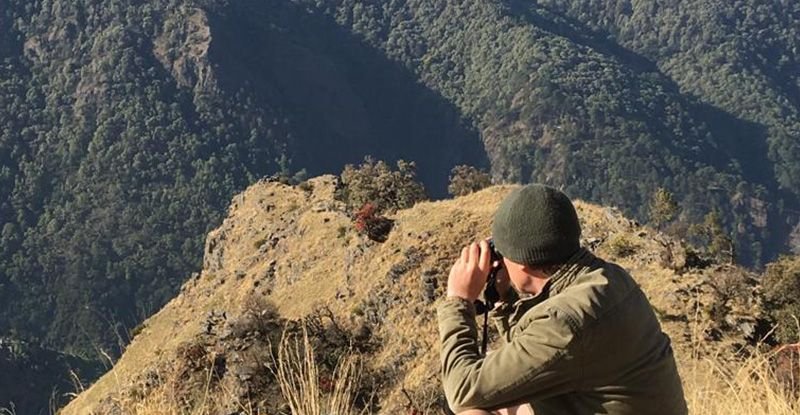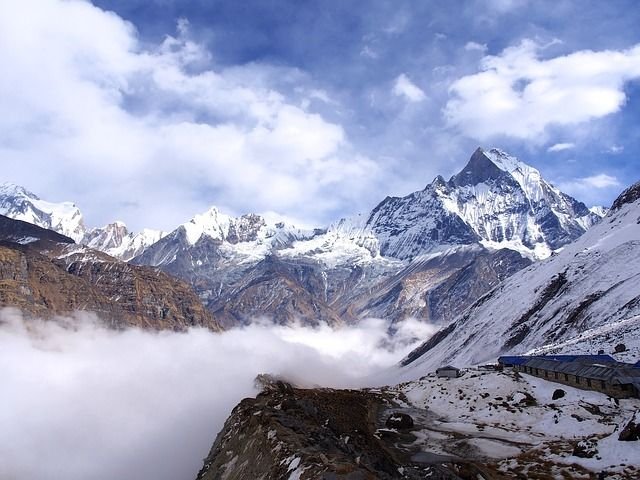Travelling is an amazing and sensational experience that everyone should have at least once in their lives. It is an opportunity to try new things, participate in foreign events, and have a generally improved outlook on life. Conservation-minded travel entails implementing green ideas and practises that can help you reduce carbon emissions, conserve species and ecosystems, and support local people while leaving nothing but your own footprints. The love of places is what brings travellers together. Most visitors want to assist the places they visit but don’t know where to start.
Eco-Tourism And Conservation-Minded Travel
As tourism grew in popularity, the emphasis shifted to visiting natural areas. By the 1980s, ecotourism had gained popularity as a movement. Several titles now represent a similar method, namely travelling with the least possible impact on the environment and supporting regional communities. For the time being, let us concentrate on Conservation Travel.
This method of tourism practice seeks to provide economic incentives for communities, encouraging them to protect ecosystems and species and encourage sustainable growth, with the goal of making sustainability advantageous to the regional community, the climate, and tourists. Anyone may play an active role in environmental conservation by taking basic efforts to have a positive impact. Here are 9 tips to get you started, by The Himalayan Outback, to be a more environmentally conscious traveller. Have a read.
Start Before You Go For A Conservation-Minded Travel
Unplug your electronic equipment when you leave the house for an extended amount of time, especially those with digital or LCD displays, such as TVs or microwaves, which consume a lot of energy whether they are turned on or not. According to the Department of Energy, “vampire” or “phantom” power waste accounts for 5% of total electronic power use. You should also ensure to turn down or off your thermostat. Also, adjust the temperature on your water heater to a lower level.
Select Carbon-Offset
Not all carbon emissions can be avoided while travelling. However, whenever feasible, aim to cut carbon emissions and offset what remains. When assessing potential carbon emissions, emissions from transportation, accommodation, recreation, and waste should all be considered.
Visit an Eco-Lodge
Instead of reserving a high-end resort with every imaginable pleasure, make an effort to stay somewhere with a lower carbon footprint. There are several “green” and “eco” motels available that aim to offer accommodation while also being environmentally friendly. If you don’t stay in one of these places, you can still do some things to reduce your carbon footprint, such as requesting your hotel to wash sheets and towels as frequently as you do at home.
Reduce Waste and Pollution
Travellers continue to exploit the planet’s resources, on which humans and all other living creatures rely, resulting in excess waste and pollution. Tiny islands and emerging areas lack significant waste management facilities and are also particularly vulnerable to climate change. Travellers may make tiny changes, such as avoiding the use of throwaway plastic goods. To be more specific, you can bring reusable water bottles and avoid using plastic shopping bags and straws. Furthermore, it is critical to conduct study to learn how to properly recycle and dispose of waste; you can always ask the people when you arrive to ensure you understand how it works.
Share the Workload
Taking public transportation is one of the finest things you can do for the environment when travelling. It denotes that you are not creating any more carbon emissions as a result of your private transportation. It will also enhance your vacation experience by allowing you to engage with locals.
Wildlife
Be mindful of animals; it’s tempting to touch or stroke the creature, but when confronted with them, blend into their environment. Never feed them, taunt them, and, most importantly, never try to take them home with you. Only your footsteps will be left behind, and all you will take from the destination will be memories and photographs. Don’t encourage people in your area to keep wild animals as pets by posing for photos with them. This will very certainly push them to pursue vulnerable animals in order to amass pets to show to tourists.

Give It Back
Take shorter showers to preserve water, especially in countries where there is a scarcity of water. Turn off the lights in your hotel room, use public transit or hitchhike, and continue with your conservation efforts as you would at home. It is your responsibility to preserve energy. Share your experiences and sustainable travel methods with others who are interested in visiting the same place.
Voluntourism
If you want to roll up your sleeves and get your hands dirty, there are several voluntourism opportunities available all over the world that allow you to actively care for animals in need. Feed and bathe wounded and homeless animals such as monkeys and parrots. If you’ve ever wanted to hand feed a panda, voluntourism in China can make that a reality. Volunteering abroad might be ideal for low-budget travellers searching for authentic experiences that will change the world for the better.
Get off the beaten path.
Many of the most popular places to see wildlife have been overrun with tourists, encouraging unregulated development that has an impact on wildlife habitat. However, with a little investigation, you can typically find alternate sites to see that animal that don’t get as many visitors.
Give Feedback
Tell businesses what you liked and didn’t like, and help them improve. Donate to support the location you visited and the memories you made. This has a long-term impact on your stay.
Spread the News
Share your photos and stories about the exceptional occasions you’ve had. Give advice to those who are interested in visiting a comparable place. Make an online evaluation of restaurants, tour companies, and structures that you appreciated, allowing sustainable practises to thrive.
Reflect
Recognize that you had a beneficial impact on a location that had an impact on you. Reflecting on journeys and activities is incredibly essential and beneficial in being more environmentally conscious. Every action has an effect, therefore strive to pick acts that have a beneficial influence on the climate.
A Positive Impact
The old adage goes, “Leave only footsteps, carry only memories.” However, responsible travel has progressed much beyond this. Low-impact travel is fantastic, but ensuring a positive influence on the environment and within regional communities is even better. Protect the environment, save animals, give back to local communities, and have a great time. And do follow the tips by The Himalayan Outback to be a more environment-friendly traveller.







